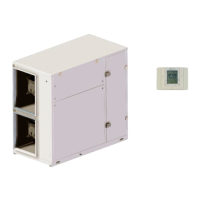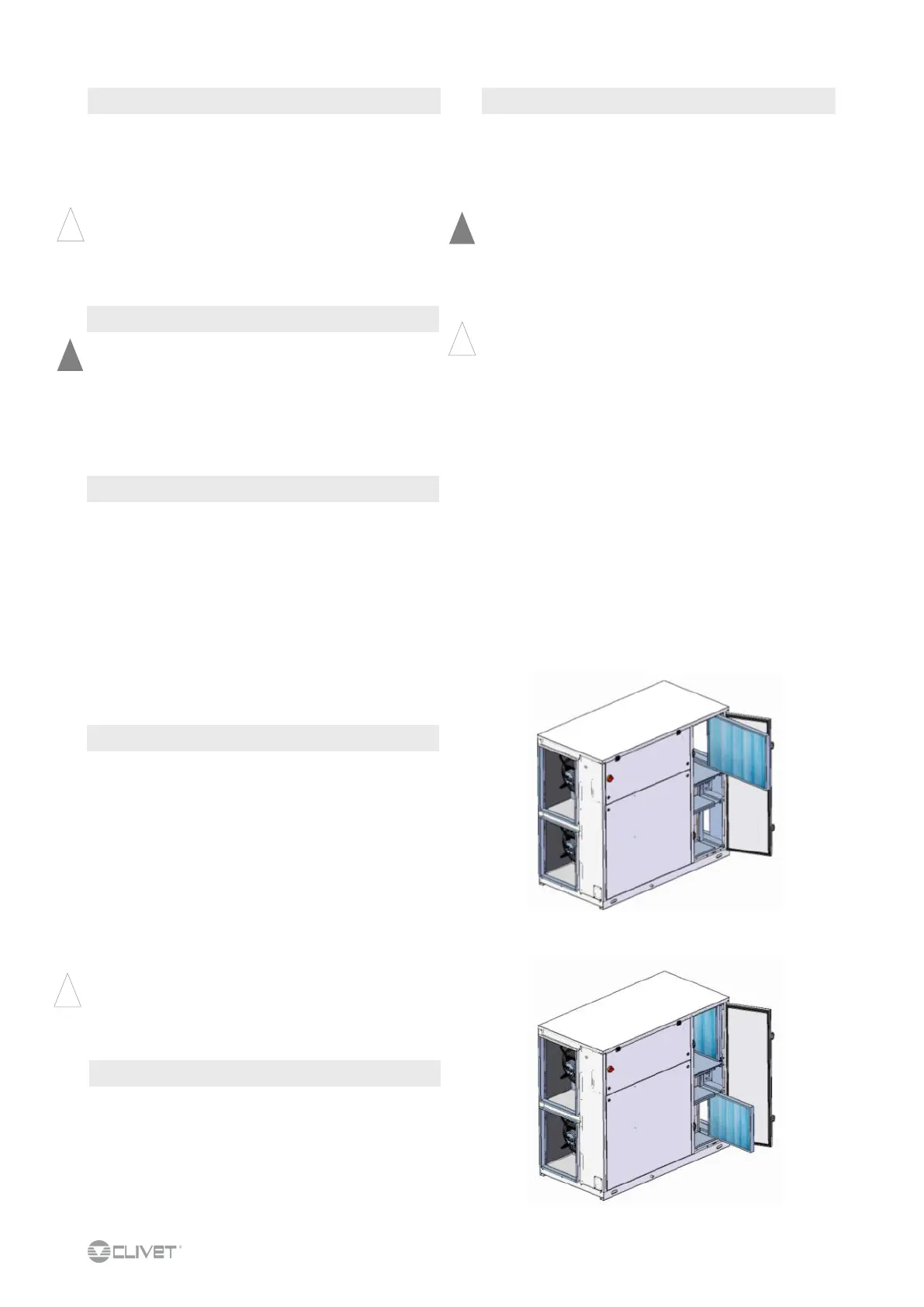43
9 - MAINTENANCE
9.2 Generality
Maintenance must be carried out authorised after-sales
assistance centres or by specialised personnel.
Maintenance allows:
maintaining the unit efficient
reduce deterioration speed to which each equipment
is subject in time
collect information and data to understand the
efficiency state of the unit and prevent possible faults
Frequency of the inspections must be at least six-monthly
However, frequency depends on the type of use.
heavy (continuous or highly intermittent, near to
operation limits, etc.)
critical (essential service).
9.3 Frequency of interventions
9.4 Machine schedule
Foresee a machine schedule to keep trace of the
interventions made on the unit.
In this way, it will be easier to adequately schedule the various
interventions and facilitate any troubleshooting.
On the schedule note:
date
type of intervention made
description of intervention
measurements taken, etc. .
If foreseen a long period of inactivity:
disconnect voltage to avoid electric risks or damages
following lightning
prevent the risk of freezing (empty or glycol the
sections of the system exposed to negative
temperatures, keep any antifreeze heaters powered)
It is advised that start-up after a period of inactivity be carried
out by a qualified technician, in particular after seasonal stops
or for seasonal switch-over.
Upon start-up, follow that indicated in the START-UP section.
Plan in advance the technician intervention to prevent
misunderstandings and be able to use the system when
required
9.5 Stand-by
9.6 Structure
Check the state of the parts constituting the structure.
Treat those parts of the unit subject to oxidation, with paints
act at eliminating or reducing the oxidation phenomena.
Check fastening of the unit external panelling.
Bad fastening give rise to anomalous noises and vibrations.
It is very important for the air treatment coil to offer maximum
thermal exchange: the unit must always work with clean and
installed filters. Cleaning and replacement of filters are very
important from an hygienic-sanitary point of view.
Operation with clogged filters leads to a reduction in the air
flow rate with malfunctionings and block, up to possible breaks
in the unit.
The frequency with which the filters must be checked depends
on the quality of the outdoor air, the unit operation hours, the
dustiness and crowding of rooms.
Frequency can indicatively vary from WEEKLY to MONTHLY.
It is advised to start with frequent checks, subsequently
adjusting frequency to degree of detected dirt.
1. Remove the closing panels
2. Delicately remove the filter avoiding dirtying the area
below
3. Wash the filtering jacket in warm water with common
detergent
4. Accurately rinse in running water avoiding spilling in
the room
5. Dry the filter
6. Insert it back in its seat
7. Remount the closing panels
Old filters, washing wastewater and residues must be
disposed of according to the current standards.
9.7 G4 Folded air filters

